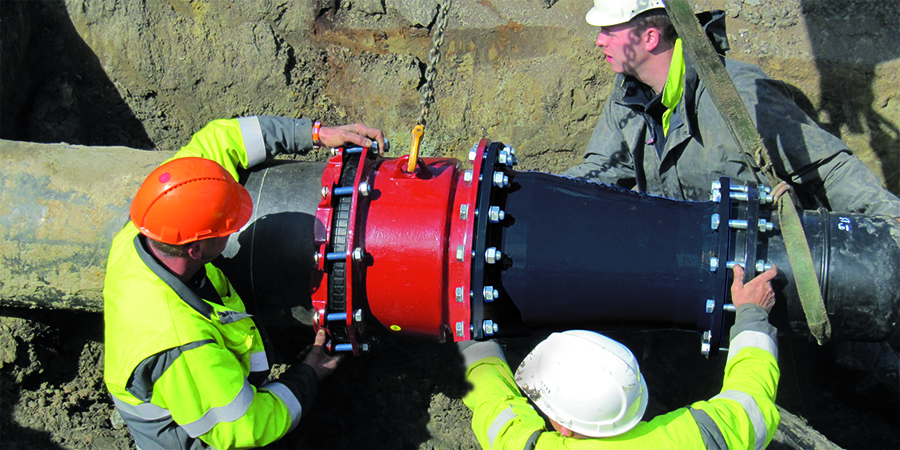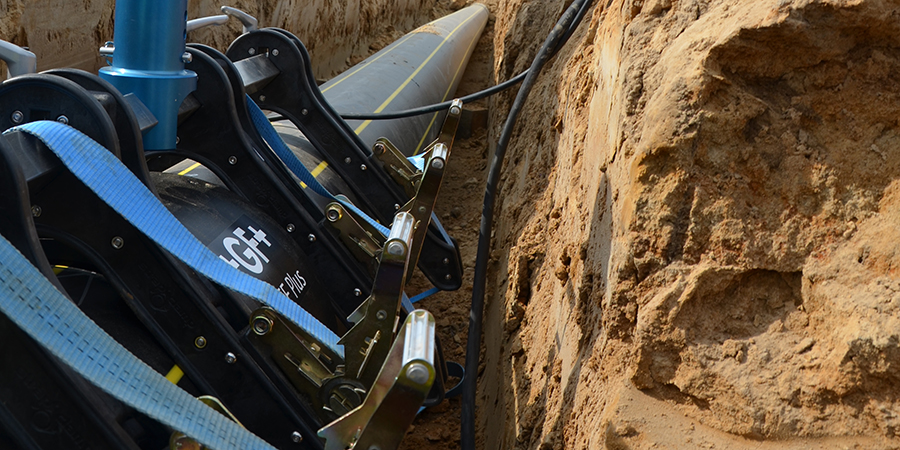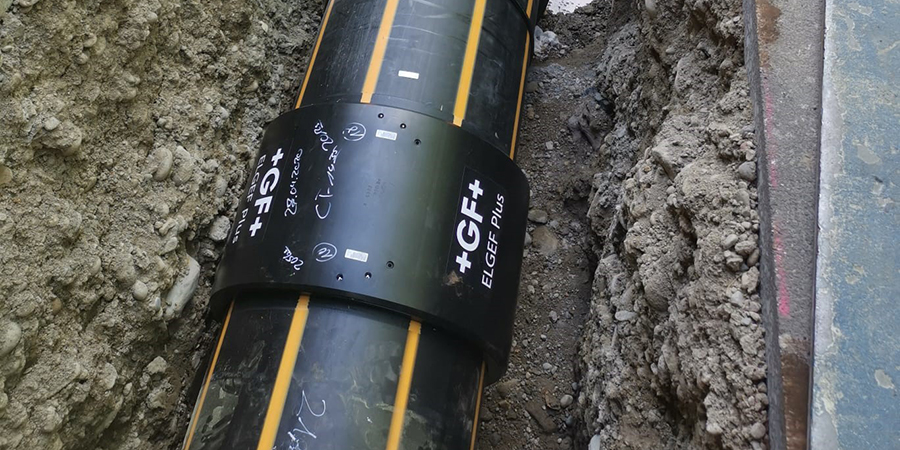Lifetime of Consistent Gas Grid Performance
GF Industry and Infrastructure Flow Solutions leads the way in long-lasting, corrosion, and maintenance-free solutions for gas distribution by offering fast, safe and customized installations. Our comprehensive piping components, jointing technologies and specialized solutions, increase efficiency, reliability, safety, and longevity. Polyethylene (PE) piping systems are designed for an impressive 100-year lifespan, offering exceptional durability and reducing maintenance and replacement needs for gas grids. Their lightweight nature lowers energy costs for transportation and installation, while their corrosion resistance ensures long-term reliability. These attributes contribute to a lower carbon footprint and enhance sustainability. Our thermoplastic solutions demonstrate our commitment to both economic efficiency and environmental responsibility for the gas industry.







